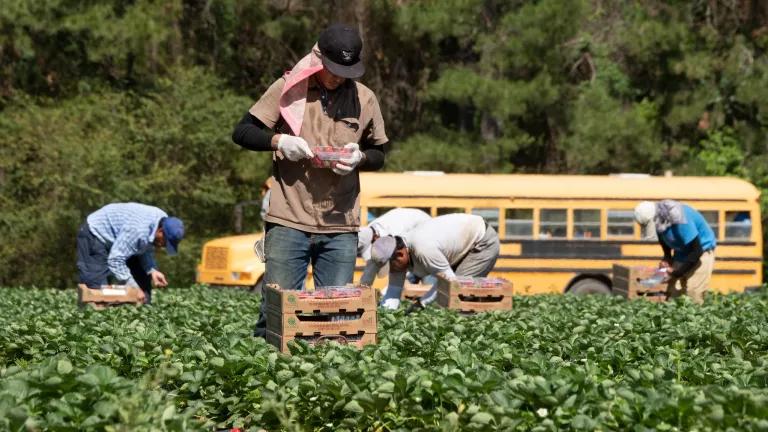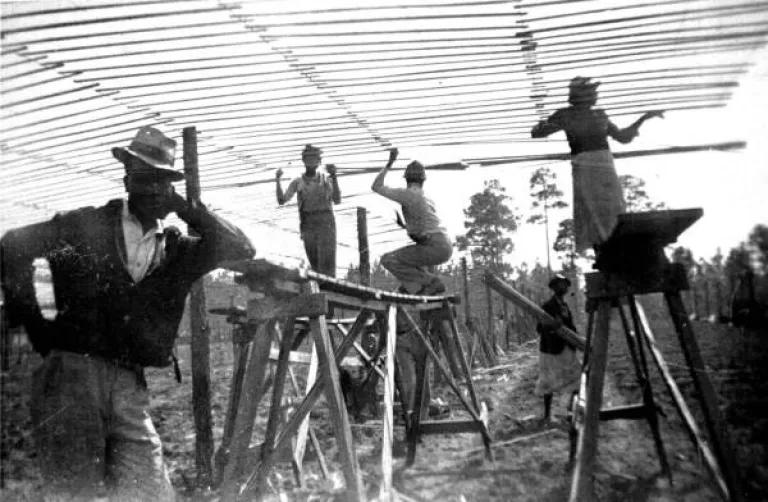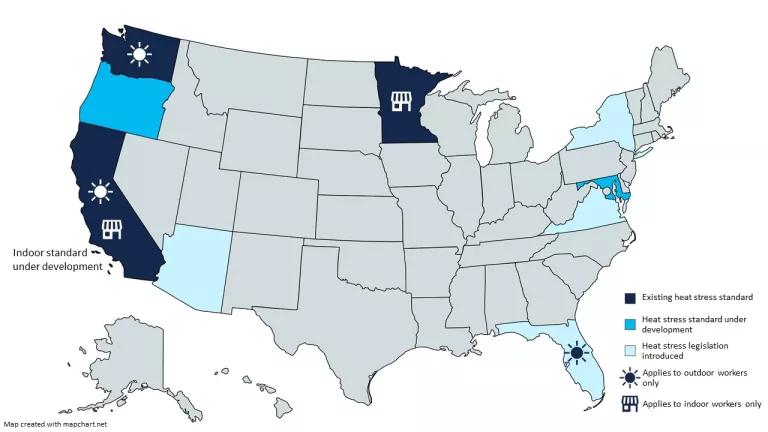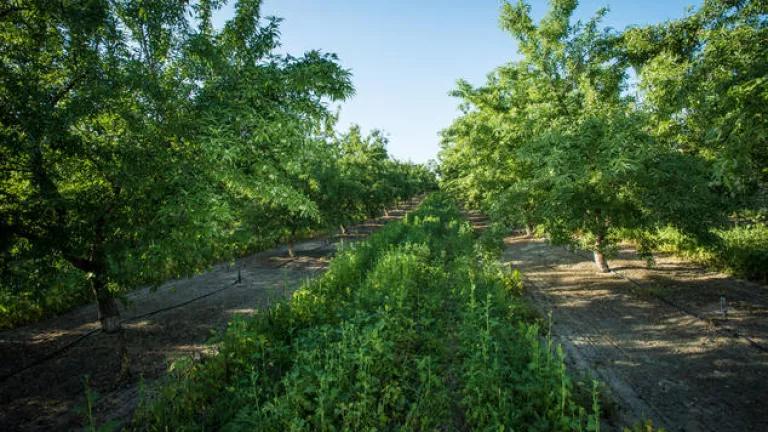Stressed by Heat, Farmworkers Deserve Federal Protections
Unprotected from many basic workplace rights and in the face of a growing climate crisis that threatens their well-being, farmworkers deserve federal safeguards from extreme heat and its dangerous effects.

Farmworkers picking and packing strawberries (2019)
Farmworkers are essential to our agricultural system yet lack many of the workplace protections that most of us take for granted. They tirelessly grow, cultivate, pick, and package the food that ends up on our tables—all amidst a pandemic, unprotected from many basic workplace rights and in the face of a growing climate crisis that threatens their well-being.
As the United States heads into a predicted unseasonably hot spring and summer, our farmworkers deserve to be protected from extreme heat and its dangerous effects. Fortunately there’s a solution that NRDC is supporting: Just reintroduced in Congress, the Asunción Valdivia Heat Illness and Fatality Prevention Act protects workers in high-heat environments with measures such as access to water, paid breaks in shaded environments, and secure protections from employer retaliation. This legislation is an essential first step to protect the nearly 2.4 million hired farmworkers from preventable heat-related injury and death.
An undervalued and vulnerable workforce
Today’s farmworkers still bear the brunt of racist exclusionary policies of the past. When President Franklin D. Roosevelt’s New Deal passed in the 1930s, it notably excluded benefits for agricultural workers. The New Deal was a landmark piece of legislation that granted new workplace rights and protections to many Americans—except farmworkers, many of whom were Black, and in the South—a system established during slavery. Farmworkers were excluded from the New Deal to keep the racist status quo and plantation system that the Southern economy largely depended on, so they did not receive minimum wage, overtime pay, or protections from workplace hazards and retaliation for collective bargaining.

African American farmworkers constructing a shade for tobacco—Hardaway, Florida (circa 1930)
Though the demographic of the farmworker has changed, the exclusionary policies are still in place, and now with the added workplace threats of climate change and extreme weather, that must change. Farmworkers are often seasonal or migrant, and sometimes undocumented, and therefore especially vulnerable to this industry and these health threats. Additionally, farmworkers often face economic hardships and language barriers—leaving some workers almost entirely dependent on employers for food, housing, and protection. They deserve federal workplace protections, which makes this legislation especially valuable.
Heat, a deadly threat to farmworkers
Farming is labor-intensive and dangerous, and increasingly hazardous due to climate change. Layers of clothing to protect from cuts and pesticides and the pay-by-piece employment of many workers amplify the heat-related health outcomes workers face.
Extreme heat harms farmworkers not just in the fields, but also in produce packing sheds and in their living areas. Housing situations for farmworkers can be precarious. For instance, temporary agricultural workers on H2-A visas are at the mercy of their employers, who are supposed to provide housing of at least a minimum safety and quality, but often don’t. For farmworkers who are unable to obtain those visas, low wages and a dearth of affordable options lead to inadequate and unhealthy housing. Some farmworker housing even fails to have air-conditioning, fans, or adequate cooling. Lack of cooling at night to recover from the day’s heat means that some farmworkers could start their workday already experiencing heat stress. This makes it even more important for workers to have protections from extreme heat at work during the day.
A pathway forward to heat protections
Heat-related illness and injuries are entirely preventable. Currently, workplace protections from extreme heat exist in only three states with occupational heat stress safeguards, so safety is dependent upon where workers live. For outdoor workers such as farmworkers, that luck only extends to California and Washington—with only indoor workers protected in Minnesota. Several more states have passed or introduced workplace heat legislation and directives to protect workers from heat. Unfortunately, without federal legislation, farmworkers outside of these states are without protections.

State level heat stress legislation and standards (2021)
Health and safety protection shouldn’t be dictated by geography. Outdoor and indoor workers alike need federal protections to help keep them safe from the effects of heat.
The Asunción Valdivia Heat Illness and Fatality Prevention Act is a commonsense, critical first step forward to protect essential outdoor and indoor workers from the health harms of extreme heat. It would direct the Occupational Safety and Health Administration (OSHA) to develop heat stress safeguards that, with proper enforcement, can help prevent further heat-related tragedies. Supported by environmental, labor, faith, health and immigration justice organizations, it recognizes that for farmworkers and other workers impacted by extreme heat, their health, safety, and rights are as important as their essential work.


